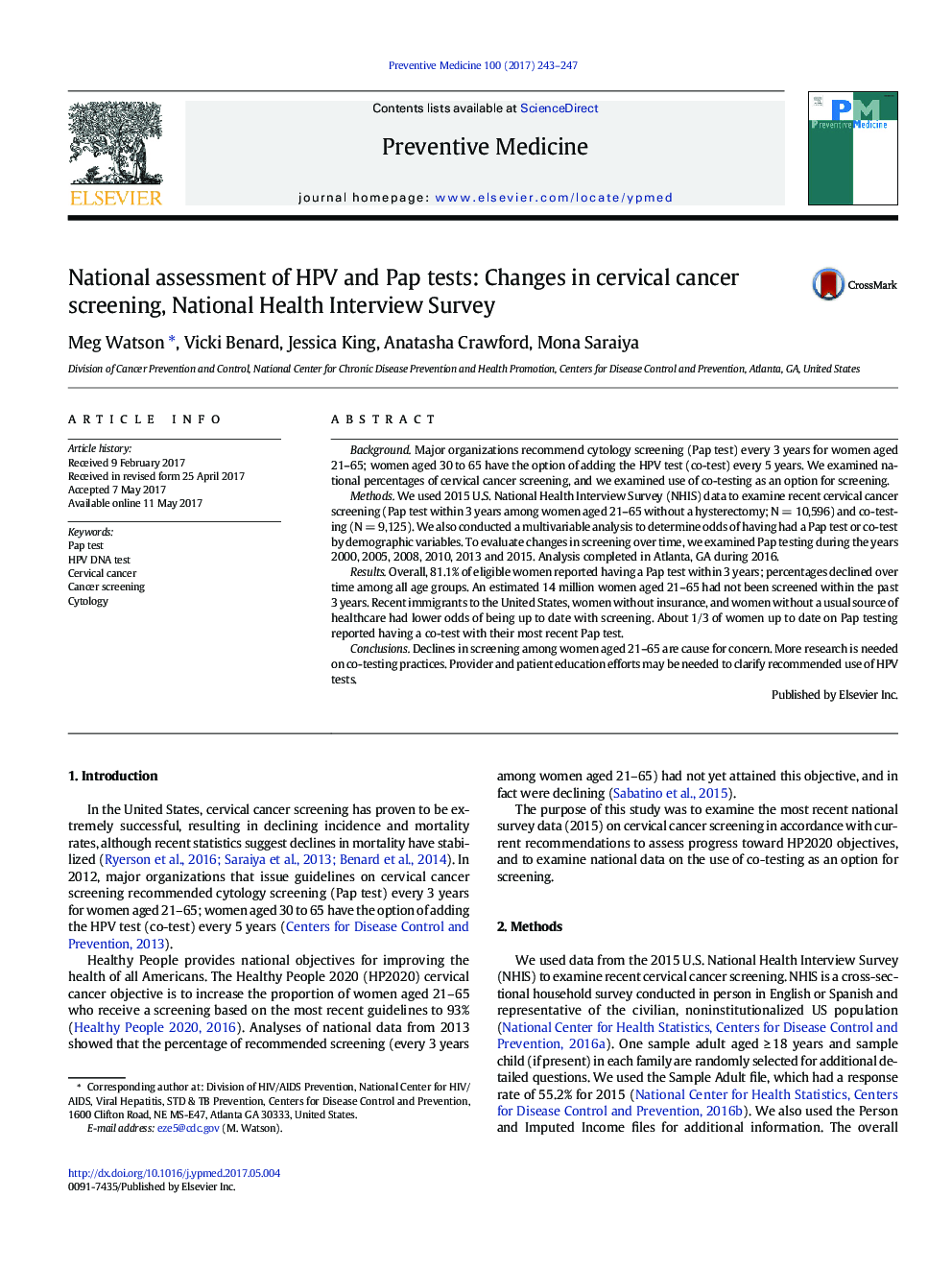| کد مقاله | کد نشریه | سال انتشار | مقاله انگلیسی | نسخه تمام متن |
|---|---|---|---|---|
| 5635624 | 1581614 | 2017 | 5 صفحه PDF | دانلود رایگان |

- Four out of five eligible women reported having a Pap test within three years, consistent with recommendations.
- Cervical screening declined over time and some women, such as recent immigrants and uninsured women, had lower rates.
- Nearly one-third of women self-reporting recent screening also reported being tested for HPV.
BackgroundMajor organizations recommend cytology screening (Pap test) every 3Â years for women aged 21-65; women aged 30 to 65 have the option of adding the HPV test (co-test) every 5Â years. We examined national percentages of cervical cancer screening, and we examined use of co-testing as an option for screening.MethodsWe used 2015 U.S. National Health Interview Survey (NHIS) data to examine recent cervical cancer screening (Pap test within 3Â years among women aged 21-65 without a hysterectomy; NÂ =Â 10,596) and co-testing (NÂ =Â 9,125). We also conducted a multivariable analysis to determine odds of having had a Pap test or co-test by demographic variables. To evaluate changes in screening over time, we examined Pap testing during the years 2000, 2005, 2008, 2010, 2013 and 2015. Analysis completed in Atlanta, GA during 2016.ResultsOverall, 81.1% of eligible women reported having a Pap test within 3Â years; percentages declined over time among all age groups. An estimated 14 million women aged 21-65 had not been screened within the past 3Â years. Recent immigrants to the United States, women without insurance, and women without a usual source of healthcare had lower odds of being up to date with screening. About 1/3 of women up to date on Pap testing reported having a co-test with their most recent Pap test.ConclusionsDeclines in screening among women aged 21-65 are cause for concern. More research is needed on co-testing practices. Provider and patient education efforts may be needed to clarify recommended use of HPV tests.
Journal: Preventive Medicine - Volume 100, July 2017, Pages 243-247